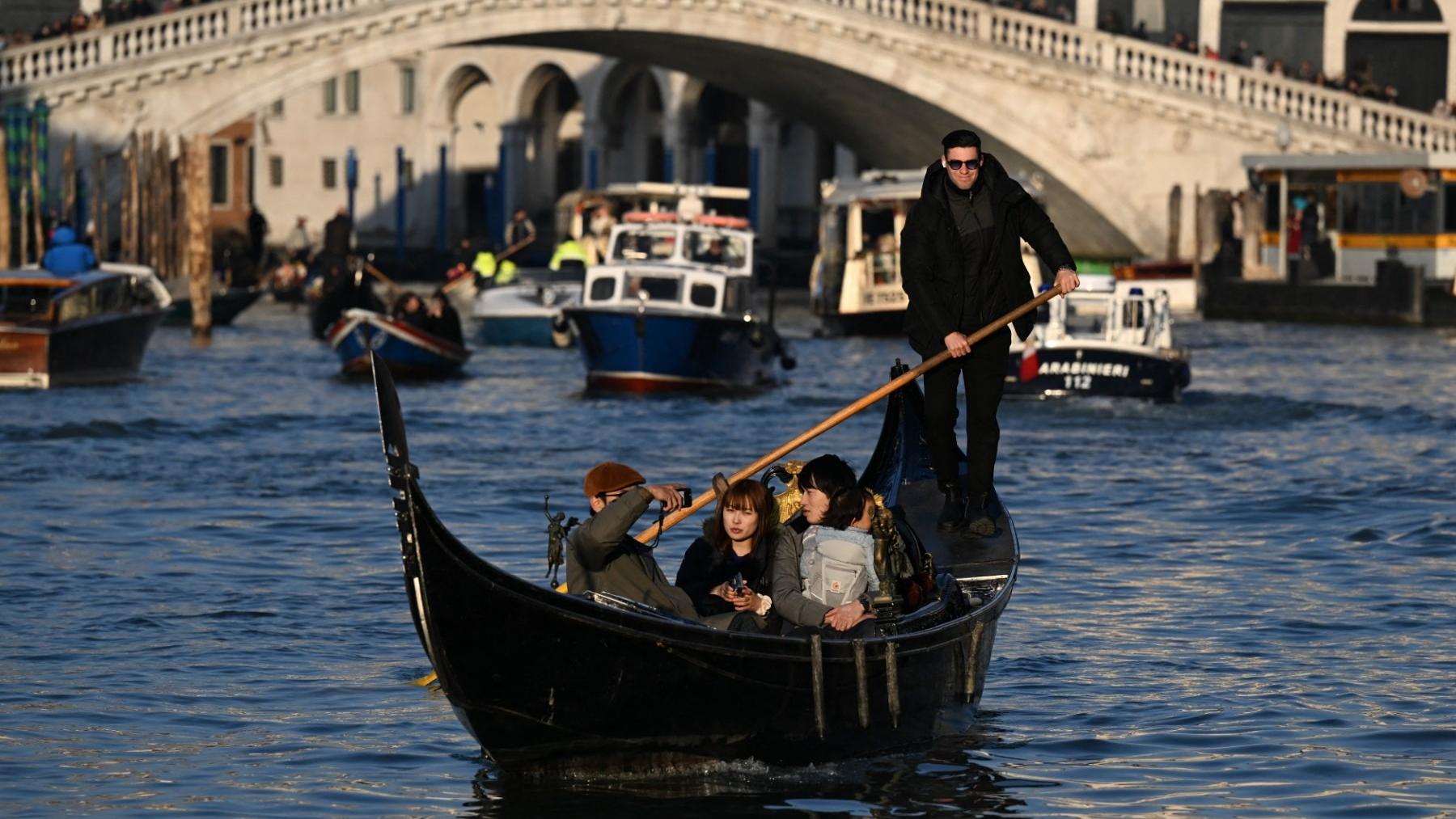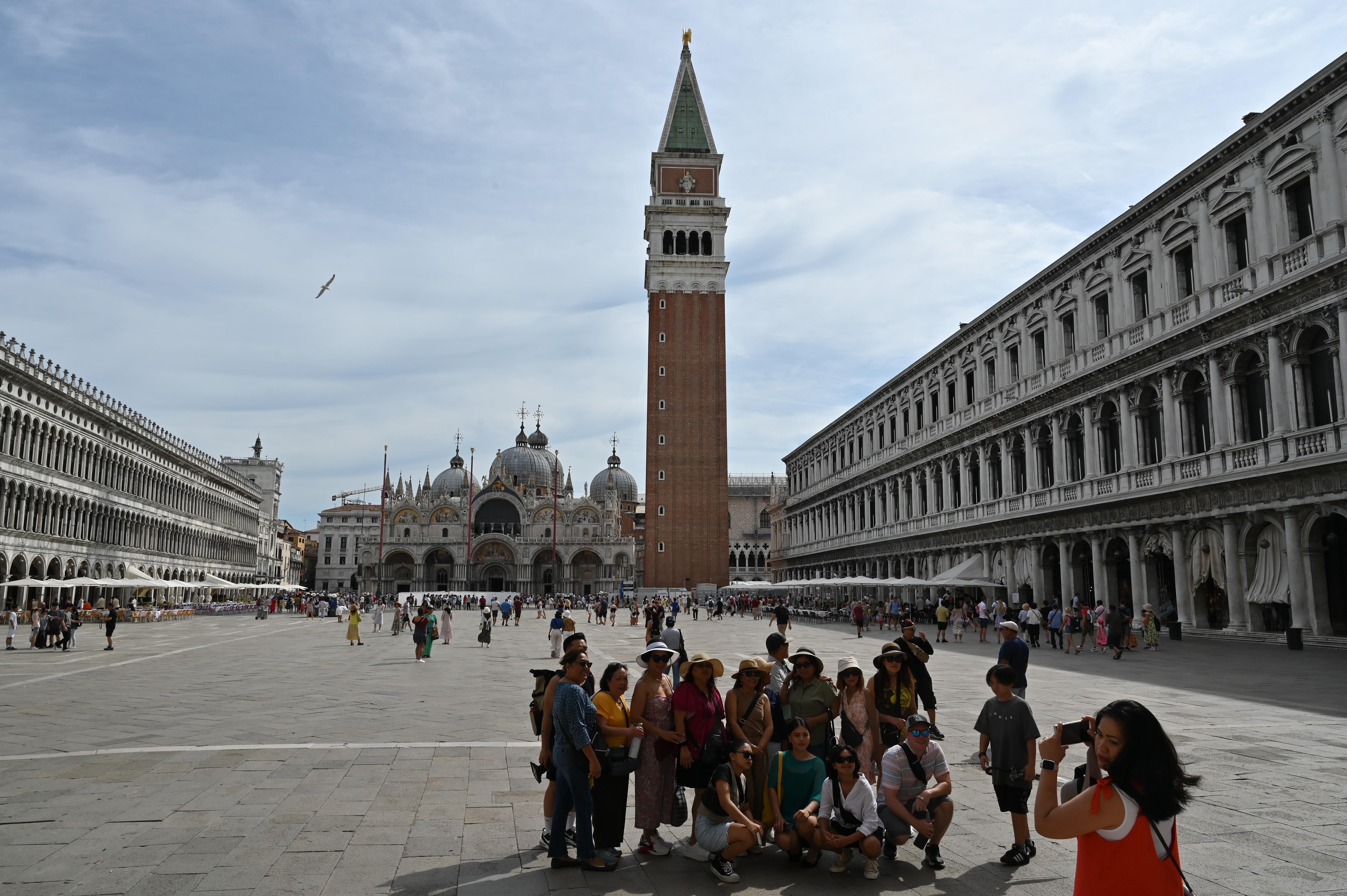 In this file photo dated Feb 11, 2023, tourists enjoy a gondola ride on the Grand Canal by the Rialto bridge in Venice during the Venice carnival. (PHOTO / AFP)
In this file photo dated Feb 11, 2023, tourists enjoy a gondola ride on the Grand Canal by the Rialto bridge in Venice during the Venice carnival. (PHOTO / AFP)
MILAN - Venice will start testing a daily admission fee and cap on visitor access to its famous canals from next April, in what the Italian city's mayor hailed as the world's first such scheme.
The move is aimed at managing the flow of tourists on spring bank holidays and some summer weekends when visitor numbers are at their peak, local authorities said during a press conference on Thursday.
"It is the first time in the world that you do something like this, you make a city bookable," Mayor Luigi Brugnaro said.
The restrictions will apply from 0830 to 1600 local time, initially for a total of 29 days and cover most weekends from April 25 to mid July next year.
Travelers will have to book their visit online and pay 5 euros ($5.45) to obtain a QR code that will be checked at specific entry points and will grant them access to the city's historic quarters.
ALSO READ: Venice to start charging visitors entry fee next year
Restrictions will not apply to the lagoon's smaller islands, such as Murano, famous for its glass-making industry.
 A photo taken on July 31, 2023 shows tourists taking a souvenir group photo at St. Mark's square in Venice. (PHOTO / AFP)
A photo taken on July 31, 2023 shows tourists taking a souvenir group photo at St. Mark's square in Venice. (PHOTO / AFP)
Potential sanctions will range from 50 to 310 euros will be imposed on those failing to comply with the measure.
Residents and people who were born in Venice as well as students, workers and home owners in the city will be exempt from paying and booking a slot, councillor Michele Zuin said.
Visitors aged under 14 will need to be registered but access for them will be free of charge.
Mass tourism and floods have long been a problem for the fragile lagoon city, known for its canals and cultural sites.
READ MORE: Venice's waters turn fluorescent green near Rialto Bridge
"We want to measure the effect of this trial, we want to measure the effect of this bookability," said Brugnaro, noting the experiment would initially lose money.
The trial is estimated to cost 3 million euros against proceeds for about 700,000 euros.


